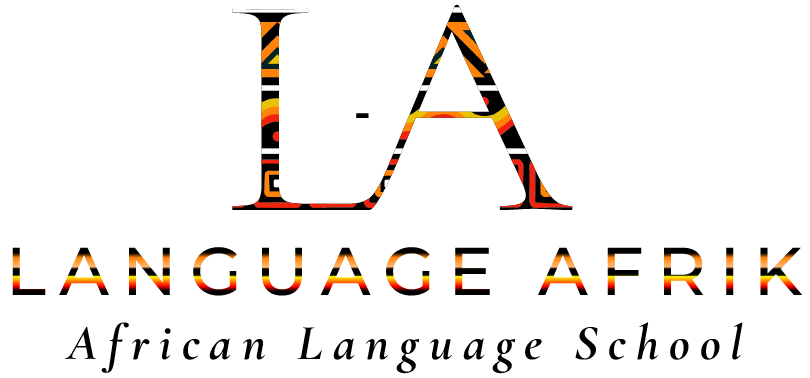The Igbo people and their language, Igbo (Asụsụ Igbo), have a rich cultural and historical presence that stretches far beyond the southeastern region of Nigeria. Through migration, trade, and globalization, the Igbo language and culture have spread to different parts of the world, fostering communities that maintain a deep connection to their heritage.
The Igbo Diaspora: A Global Community
1. The Americas
- United States: One of the largest Igbo diasporas exists in the United States. Many Igbo people arrived during the Transatlantic Slave Trade, and their descendants are believed to have influenced aspects of African-American culture, language, and religion. Today, there are vibrant Igbo communities in cities like Houston, New York, Atlanta, and Washington, D.C. These communities often hold cultural festivals and Igbo language classes, ensuring that younger generations can connect with their roots.
- Brazil: Igbos also played a significant role in the history of Brazil. Some historians suggest that Igbo culture influenced Afro-Brazilian religious practices and rituals. Elements of Igbo spirituality and traditions can be seen in the Candomblé religion and other aspects of Afro-Brazilian life.
- The Caribbean: Countries such as Jamaica, Cuba, and Haiti have Igbo influences in their cultural expressions. In Jamaica, the Igbo Landing myth, a legendary account of Igbo slaves’ resistance to enslavement, is still celebrated as a symbol of freedom and resilience. In Haiti, the influence of Igbo culture is seen in aspects of Vodou religion, music, and proverbs.
2. United Kingdom
- The UK has a large and thriving Igbo community, particularly in cities like London, Birmingham, and Manchester. Many Igbo people migrated to the UK in the mid-20th century, drawn by educational and employment opportunities. Today, they form an influential part of the African diaspora in Britain.
- The Igbo community in the UK actively preserves its language and culture. Events such as the Igbo Cultural Day are celebrated annually, and several community organizations offer Igbo language lessons and cultural programs for younger generations. These efforts ensure that the Igbo language and cultural heritage are passed on to future generations living abroad.
3. Canada
- In recent decades, Canada has become home to a growing number of Igbo immigrants, especially in cities like Toronto, Ottawa, and Vancouver. This Igbo community is known for its strong focus on education, business, and preserving cultural values. As in other parts of the world, Canadian Igbo communities organize cultural festivals, language programs, and business forums to promote the Igbo language and traditions.
4. Other African Countries
- Equatorial Guinea: Historically, Igbo people have migrated to nearby countries such as Equatorial Guinea. Some Igbo communities in Equatorial Guinea continue to speak their language and practice traditional customs, helping maintain ties with their heritage.
- Ghana: Another West African country with a significant Igbo presence is Ghana. The Igbo community in Ghana is well-integrated into the local economy, particularly in trade and business, and continues to pass on Igbo traditions to new generations.
5. Australia and Asia
- While the Igbo presence in regions like Australia and Asia (particularly in countries like China and India) is smaller, it is still significant. The Igbo community in Australia, for instance, is composed largely of professionals and students. They maintain their cultural ties through local Igbo associations that promote cultural and language learning among Igbo descendants.
Igbo Cultural Influence Around the World
Beyond language, the Igbo have left a lasting cultural footprint in the areas where they have settled. From spiritual practices to cuisine and art, Igbo culture continues to influence global communities in various ways:
- Music and Dance: Igbo music, especially traditional highlife and contemporary Afrobeat, has gained global recognition. Nigerian artists of Igbo descent, such as Flavour N’abania and Phyno, have brought Igbo language and sounds to the world stage, contributing to the global appeal of Afrobeat.
- Festivals and Cultural Celebrations: Igbo cultural festivals, such as the New Yam Festival (Iri Ji), are celebrated in various parts of the world where Igbo people live. These events not only celebrate the harvest but also showcase Igbo traditions, language, and music.
- Religion and Spirituality: In addition to influencing Afro-American and Afro-Caribbean religions like Vodou and Candomblé, Igbo spirituality continues to be practiced and respected in diaspora communities. Traditional Igbo beliefs are often intertwined with Christianity, especially in places like the United States and Brazil.
Preserving the Igbo Language in the Diaspora
One of the significant challenges facing the Igbo diaspora is the preservation of the Igbo language. With younger generations growing up in countries where English, Portuguese, or French is dominant, many Igbo families strive to teach their children the language at home. Community organizations, churches, and educational programs play a critical role in keeping the language alive.
- Language Schools: In cities like London, New York, and Toronto, Igbo language schools offer classes for children and adults who want to learn or improve their language skills. These classes are often combined with cultural education to deepen the learners’ connection to their heritage.
- Digital Resources: Online platforms like Language Afrik are making it easier for people around the world to learn Igbo. These platforms offer interactive lessons, practice exercises, and resources that allow learners to study at their own pace, no matter where they are in the world.
Conclusion
The Igbo language has grown beyond the borders of Nigeria, creating a global community that is proud of its heritage and eager to preserve it. Whether in the Americas, Europe, or Africa, the Igbo language and culture continue to flourish through festivals, educational programs, and online platforms like Language Afrik, which help connect the diaspora to its roots.
Learning Igbo is not just about language acquisition; it’s about embracing a rich, resilient, and influential culture that has impacted the world in profound ways.

